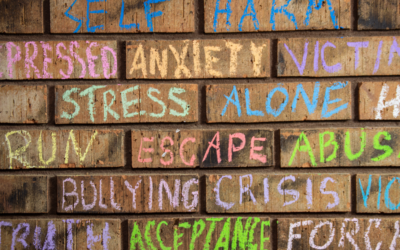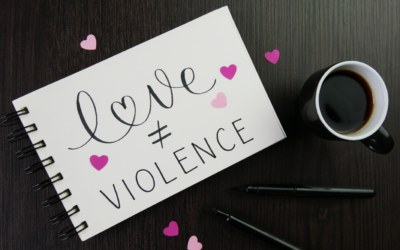Emotional vulnerability is often misunderstood or overlooked in a world that often values strength and self-sufficiency. However, embracing and expressing our emotions genuinely and openly can be a powerful catalyst for personal growth, healing, and deepening connections with others. In this blog post, we will explore the concept of emotional vulnerability, its benefits, and strategies for cultivating and embracing it in our lives.
Understanding Emotional Vulnerability
Being emotionally vulnerable means having the bravery to reveal your genuine emotions, fears, and insecurities without worrying about being judged or rejected. This involves removing the protective masks we often wear and allowing ourselves to be seen and heard in our true and honest state. It’s a significant act of showing our authentic selves and accepting who we are, which helps create a safe space where trust and deeper connections can be formed with others. Emotional vulnerability leads to personal growth and self-awareness as it helps us better understand ourselves and our needs. It is a powerful force for building resilience, accepting imperfections, and establishing meaningful relationships based on trust and understanding.
Benefits of Emotional Vulnerability
Authentic connections
Being emotionally vulnerable is an important aspect of building authentic connections with others. When we dare to express our true emotions and insecurities, we create a safe space for trust and openness. This, in turn, encourages others to do the same. Genuine connections thrive when we let go of our defenses and allow ourselves to be truly seen and understood. Emotional vulnerability fosters empathy, compassion, and mutual understanding, strengthening our bonds with others. These authentic connections provide a supportive environment for growth, healing, and a deep sense of belonging.
Personal growth and self-awareness
Being emotionally vulnerable can help us grow and become more self-aware. When we allow ourselves to feel and show our true emotions, we embark on self-discovery and reflection. This allows us to better understand our deepest thoughts, fears, and desires and gain insight into ourselves and our needs. By doing so, we develop greater self-awareness, recognizing patterns, strengths, and areas for improvement. Emotional vulnerability can lead to personal transformation, as it gives us the power to confront and heal from past hurts, challenge negative beliefs, and embrace our true selves. Through this brave vulnerability, we open ourselves up to profound personal growth and the realization of our full potential.
Emotional resilience
The connection between emotional resilience and vulnerability is intricate yet substantial. Vulnerability entails being open about our emotions, while resilience empowers us to navigate and conquer challenges. By allowing ourselves to be emotionally vulnerable, we can sincerely acknowledge and process our feelings, which creates room for personal development and healing. This vulnerability assists us in building resilience and confronting adversity with more ease amidst discomfort and uncertainty. By embracing our vulnerabilities, we can adapt, learn, and discover strength in the face of setbacks. Ultimately, emotional vulnerability and resilience synergize to enable us to confront life’s ups and downs with bravery, genuineness, and a firm belief in our capability to overcome obstacles.
Cultivating Emotional Vulnerability
Embarking on the journey of emotional vulnerability requires us to be honest, brave, and kind to ourselves. This path enables us to create a safe space within, where we can freely express our authentic emotions, fears, and uncertainties. We can embrace our true selves and form meaningful bonds with others by adopting practical techniques. Here are some helpful strategies to aid in the process.
Self-reflection
To practice self-reflection, find a quiet and comfortable space to be alone with your thoughts. Engage in introspection by asking yourself probing questions about your emotions, thoughts, and experiences. Write in a journal, meditate, or engage in mindful activities to deepen your self-awareness and gain valuable insights into your beliefs, values, and personal growth areas.
Practicing self-compassion
To develop a mindset that accepts and doesn’t judge your emotions, begin with mindfulness. Observe your emotions without labeling or criticizing them. Build a comforting inner voice that tells you all emotions are valid and part of being human. Reflect on what your emotions mean and what they’re telling you. This way, you’ll cultivate compassion and empathy towards yourself and your emotional state.
Start small and build trust
If you want to develop trust in others for your emotions, it’s best to take it slow. Begin by observing and evaluating their dependability and compassion in less risky situations. Share gradually and start with less sensitive feelings and experiences while paying attention to their feedback and level of encouragement. As trust grows over time, you can gradually disclose more emotionally intimate details, ensuring it matches your comfort level and the trust you have established in the relationship.
Active listening
To become a good listener, focusing entirely on the speaker and showing interest through non-verbal signals like eye contact is important. Empathy is key, so try to understand the speaker’s point of view and reflect back on their emotions and thoughts to show that you comprehend. Remember to avoid interrupting or preparing your own responses while the speaker is talking, as this will allow them to express themselves fully.
Seeking professional support
If you find that past traumas or long-standing fears are preventing you from being open and vulnerable with others, seeking the guidance of a therapist or counselor can be an incredibly helpful and supportive step. These professionals can assist you in navigating your emotions, processing your fears, and exploring the root causes of your distress. With their help, you can develop strategies for coping, gain greater insight into your patterns of behavior, and gradually build the skills and resilience necessary to form genuine connections and embrace vulnerability.
Navigating Vulnerability and Boundaries
Setting healthy boundaries
Establishing boundaries is essential to maintaining healthy relationships and protecting your emotional well-being. While the vulnerability is important, it’s equally crucial to communicate your expectations and limits to others. This involves reflecting on your needs and determining what you require to feel comfortable and secure in opening up emotionally.
Setting boundaries means not only identifying what you need but also what you’re not willing to tolerate. Consider what topics are off-limits and what behaviors make you uncomfortable.
Remember that respecting the boundaries of others is just as important as setting your own. It can be challenging to recognize when our actions violate someone else’s boundaries, so it’s essential to be mindful of different comfort levels when it comes to emotional vulnerability.
To effectively communicate your boundaries, be clear and seek support from a trusted person if needed. By establishing and respecting boundaries, you can foster mutual respect and healthy relationships.
Vulnerability requires trust, so it’s essential to establish trust in relationships over time before revealing deeper layers of emotions and experiences.
Embracing Vulnerability in Everyday Life
Celebrating Imperfections
Acknowledging and embracing imperfections is a key aspect of recognizing that no one is perfect and that our unique quirks and idiosyncrasies contribute to our individuality. Rather than striving for an unattainable standard of perfection, we should appreciate the diversity that imperfections bring to our lives. Celebrating imperfections means valuing authenticity over conformity, allowing ourselves and others to be genuine and unapologetically human. This encourages compassion, empathy, and a sense of shared humanity since imperfections are a universal part of the human experience.
Embracing Failure and Growth
Failures are not the end but rather a catalyst for growth and learning. By embracing failures, we release ourselves from the fear of making mistakes and instead view setbacks as opportunities for personal and professional development. Each failure presents valuable lessons, allowing us to refine our skills, broaden our perspectives, and develop resilience. Embracing failures means acknowledging that success is often preceded by numerous trials and errors. It fosters a growth mindset, where progress is prioritized over perfection and mistakes are viewed as stepping stones toward improvement.
Encouraging Open Communication
Open communication is the bedrock of healthy relationships, both personal and professional. It involves creating an environment where individuals feel safe and empowered to express their thoughts, emotions, and concerns without fear of judgment or repercussion. We foster trust, collaboration, and understanding when we encourage open communication. It enables the exchange of diverse perspectives and ideas, leading to innovation, conflict resolution, and strengthened relationships. Through open communication, we break down barriers and create spaces that honor individual voices, promote inclusivity, and facilitate personal and collective growth.
Being emotionally vulnerable is not a weakness, rather it shows how courageous and authentic we are. When we accept our vulnerabilities, we open up avenues to strengthen our relationships, become more self-aware, and grow as individuals. Vulnerability helps us create a kinder and more empathetic world, where we can genuinely connect with others on a profound level. Therefore, let us acknowledge our emotions, share our vulnerabilities, and witness the life-changing impact of authenticity and connection.










